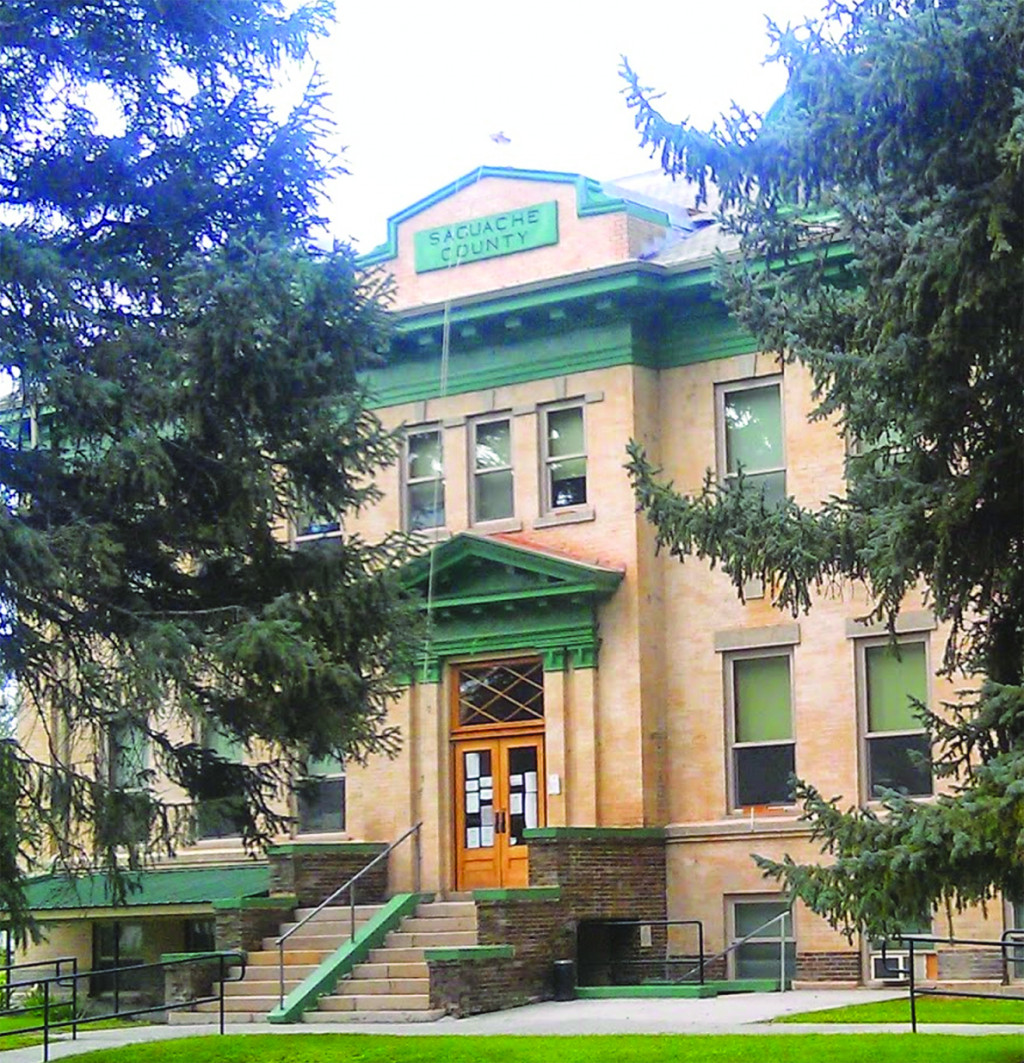Saguache County offices and jail COVID-19 outbreak spurs self-quarantine

SAGUACHE - In the age of COVID-19, asymptomatic carriers can threaten other people for a couple of days before feeling ill. So, when news about an outbreak from the Saguache jail where you worked for four days in less than a week, prudence prompts you to self-quarantine.
A few days after conducting extensive interviews and tours at the Saguache County Jail, I read press releases Oct. 9 announcing positive COVID-19 test results among county employees and inmates. Courthouse business would require appointments, and the jail was closed to visitors. On Oct. 10, a Rio Grande Hospital press release echoed visitor restrictions on Facebook as well.
Motivated by prudence and paranoia, I sought guidance from public health officials in Saguache County and Rio Grande County where I live. The two counties are still in discussions about creating a Public Health District, and a director for Rio Grande County may be announced soon. But in the meantime, positions remain open at the top of the organization charts, and staff members in both counties are fulfilling duties.
According to Ida Salazar, COVID-19 Coordinator and Healthy Communities Supervisor for Rio Grande County Public Health, the decision to self-quarantine hinges on “significant exposure.” If you spend more than 15 minutes less than 6 feet from an infected person and neither of you wears a mask during your conversations, the exposure is significant.
I estimated three hours in the jail, spread over four visits in six days. Although I wore a mask for every visit, inmates and staff did not. The hallways, cells and rooms are tight. The ventilation system is ancient. One person coughed consistently.
Salazar explained that I was at the tail end of my quarantine period Oct. 13. Assuming my first exposure was Sept. 28, she would have recommended 14 days. My last brief visit was Oct. 3.
Playing it safe through self-quarantine is “wise,” Salazar explained. “We recommend it. If you feel ill, call the hotline 303-389-1687 or 1-877-462-2911.”
Salazar emphasized hand-sanitizing and other careful hygiene practices worth following regardless of a pandemic. Salazar also recommended getting a flu vaccination. However, she advised waiting to take the shot if you feel ill, which is the same guidance people are advised to follow every year. Rio Grande Public Health offered flu shot clinics in Del Norte from Oct. 12 to 15 (regular and high-dose).
Detecting symptoms and self-isolating are not new for people who feel sick, but 2020 has spurred people to seek tests today too. Safeway and Albertsons pharmacies are selling saliva-based tests that customers can administer and manage themselves. Residents across Colorado have taken advantage of mobile test sites and other facilities in hospitals and clinics.
In Saguache County, testing followed immediately after uncovering COVID-19 cases last week. Calls to the Saguache County Public Health Department likely roll to voicemail with directions to dial six other numbers for assistance, in addition to a final option to leave a message. Already managing a full plate of tasks for the department, Janet Beiriger has been handling COVID-19 issues as well.
According to Beiriger, staff completed 27 tests Saturday and 58 more Monday, Oct. 12. Pending results, other contacts may need to be notified.
For me, contact tracing took the form of press releases copied and pasted into Facebook posts. No one called from either county to conduct a contact trace, but I was still curious about the protocol if my phone rang.
According to the Health Insurance Portability and Accountability Act of 1996 (HIPAA), protecting privacy governs personal conversations about private health information. San Luis Valley residents might not have an appetite for receiving unsolicited phone calls from officials asking questions about recent contacts. By some estimates, more than half of these calls end without an interview.
Proper contact tracing protects your health. If you receive a call, don’t hang up unless they don’t identify themselves and don’t give you a call-back number for verification when you ask for it. Officials will never ask for your Social Security number or financial information. Instead, officials from a state or local public health agency will ask where you’ve been and who you’ve contacted. Then they will notify people who may have been exposed by you, but they will not reveal your identity. Your personal information remains a secret except for the same public health staff already responsible for handling your privacy carefully.
Clear after 14 days of self-quarantine, I was fortunate. For one, I’m not sick. But I was also lucky to continue working as a remote newspaper reporter. Other employees, however, might lose livelihood during quarantine orders. Although employees are legally protected from being fired because of a positive COVID-19 test, it remains worrisome. By law, health officials can issue letters to employers when someone completes quarantine orders. Also, a negative test does not override a quarantine order. Employees must remain isolated until 14 days pass.
If you feel ill or have questions, call the COVID-19 Colorado Hotline at (303) 389-1687 or 1-877-462-2911.



